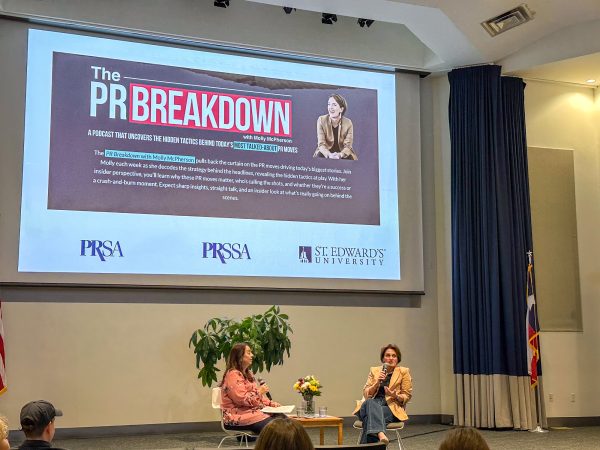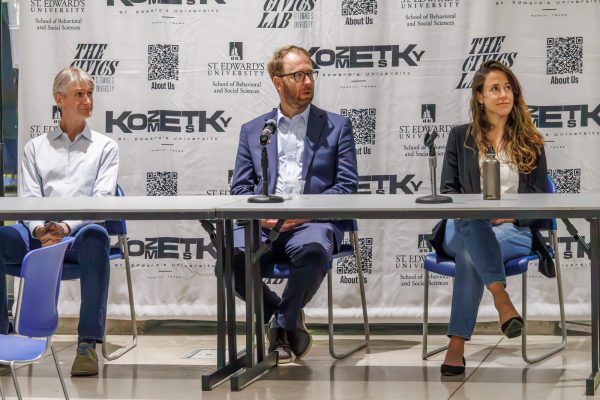First Generation Summit focuses on cultural capital, building friendships
The Equity and Justice Council (EJC) held their third First Generation Summit in the Student Activities Lounge on Feb. 28. Organized by senior Rachel Leader and junior Leslie Rios, this is the second event of its type this year. In the fall, the First Generation Summit’s objective was to demonstrate what sort of resources are available on campus for students that are looking for help.
“My challenge this semester was: how are we going to make it different for students who have been to [a First Generation Summit] in the past? How are we challenging students in new and different ways?” said Rachel Leader, Education Coordinator for EJC.
This time around, EJC decided to complement last semester’s summit by focusing on having conversations, unpacking experiences and understanding what it means to not have cultural capital.
Cultural capital, as defined by Leader, is the experiences and people that individuals have in their lives that they can call on when they need help or advice, something that first-generation students often do not have readily available to them.
Kat Garcia, freshman, recognizes this and came to the event with her friend who is a first generation student.
Garcia said, “I came here to support Tammy. When I started college my parents always told me what to do and how it works and everything but [first generation students] don’t really have that. It’s not something you always realize.”
The event included different workshops to reflect on identity, experiences, worries and stresses. To address the idea of cultural capital, Leader and Rios organized an activity where participants were asked to build a home. They received a list of furniture and appliances that they needed to place on the blueprint of their home.
Meanwhile, Leader and another EJC team member were going around acting as the “parents,” and one of them was helpful, while the other was not. The point of the exercise was to demonstrate the ways the advice you receive from the people in your life can impact your decisions and the outcome of the situation. It was meant to prove that sometimes the people in your life don’t know the right way to help you; therefore demonstrating a lack of cultural capital.
This activity instigated a lot of conversation and allowed students to share similar experiences.
“Coming to events like these can help you and get used to these experiences. It’s a place where we can connect with other people that might be struggling with the same things that we are,” said Tamara Cortes, freshman and first-generation student.
Which is exactly why they hold these events, said Rios.
“I understand why I am quiet sometimes, or why I stretch myself so thin, or the connection I feel with my family, the guilt and the stress, it all leads back to me being a first-generation student,” she said. “So I feel like I need to put on events that I feel like other students will connect with.”









